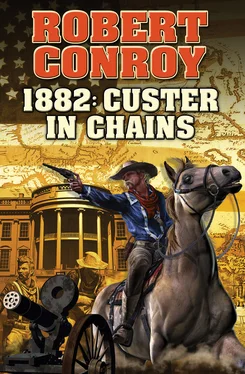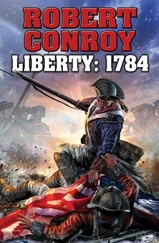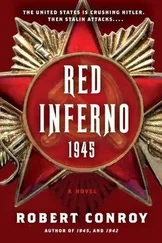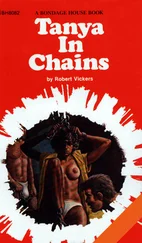Robert Conroy - 1882 - Custer in Chains
Здесь есть возможность читать онлайн «Robert Conroy - 1882 - Custer in Chains» весь текст электронной книги совершенно бесплатно (целиком полную версию без сокращений). В некоторых случаях можно слушать аудио, скачать через торрент в формате fb2 и присутствует краткое содержание. Год выпуска: 2015, Издательство: Baen, Жанр: Альтернативная история, на английском языке. Описание произведения, (предисловие) а так же отзывы посетителей доступны на портале библиотеки ЛибКат.
- Название:1882: Custer in Chains
- Автор:
- Издательство:Baen
- Жанр:
- Год:2015
- ISBN:нет данных
- Рейтинг книги:3 / 5. Голосов: 1
-
Избранное:Добавить в избранное
- Отзывы:
-
Ваша оценка:
- 60
- 1
- 2
- 3
- 4
- 5
1882: Custer in Chains: краткое содержание, описание и аннотация
Предлагаем к чтению аннотацию, описание, краткое содержание или предисловие (зависит от того, что написал сам автор книги «1882: Custer in Chains»). Если вы не нашли необходимую информацию о книге — напишите в комментариях, мы постараемся отыскать её.
1882: Custer in Chains — читать онлайн бесплатно полную книгу (весь текст) целиком
Ниже представлен текст книги, разбитый по страницам. Система сохранения места последней прочитанной страницы, позволяет с удобством читать онлайн бесплатно книгу «1882: Custer in Chains», без необходимости каждый раз заново искать на чём Вы остановились. Поставьте закладку, и сможете в любой момент перейти на страницу, на которой закончили чтение.
Интервал:
Закладка:
* * *
Gilberto Salazar lay in the mud and tried not to show his men how uncomfortable he was. Leadership often came with a price and getting muddy water down his shirt and into his pants was a small one to pay.
Nearly a hundred of his legionnaires were arrayed in a line to either side of him and were as well hidden as he. His only regret was that they were not able to wear their splendid white uniforms. Instead, they were dressed as the rabble they were out to kill.
He chuckled to himself. One of the side benefits of going to war with the United States was that the rebels, quiet for a few years, had emerged from their rat-holes and again begun fighting for freedom from Spain. It was not lost on Salazar and other Spanish leaders that many of the rebels were slaves who’d were beginning to get their freedom as the result of the treating ending the war in 1875. However, slavery in Cuba still existed and would until the year 1888. The idea was that the slaves would somehow be able to buy their freedom from their masters.
Salazar shifted slightly, thus allowing a fresh stream of dirty water to enter his clothing. He hoped he wasn’t getting bugs or leaches in his crotch. Some peoples, he thought, deserved to be in bondage and that included the poor blacks who were now rebelling against the Spanish Empire. Of course, not all of the rebels were Negroes, but a lot were. The group he’d been tracking fell into that category.
The sound of gunfire interrupted his thoughts. A few seconds later, he heard screams. The other company of soldiers he’d brought with him had begun pushing the rebels in his direction. In effect, they were beaters sending animals to be slaughtered. All he had to do was make sure that his men didn’t shoot their fellow legionnaires.
“Hold steady,” he said as he saw motion. As expected, the fleeing rebels were taking the path of least resistance through the thick underbrush and would emerge into a field where they could be cut down like weeds.
The first to come into view were a couple of dozen women and children. A few seconds later, their men followed, looking fearfully behind them and not to the front where the real danger lay. Only a handful of the rebels had rifles. Most were armed only with machetes that they held nervously. They began to fun faster. They had to leave the field and hide in what amounted to a jungle. Some were wounded and were being dragged by their companions.
“Now,” Salazar yelled. He stood and opened fire with his pistol and was delighted when a woman he’d aimed at staggered and fell.
His men responded with well-disciplined fire that ripped through the rebels, throwing them around like toys. They howled and tried to escape to their right and left, but his men followed them with their rifles, cutting them down.
In less than a minute it was over. Salazar figured that a few had made it to safety, but that was not a major concern. Let them tell of the punishment Gilberto Salazar could inflict on the enemies of Spain.
His men had commenced picking through the dead and the wounded. The men were executed immediately, as were the young boys. His philosophy was that pups could grow up to become wolves, so they needed to die. The few surviving women and young girls were handed over to his men who had already stripped them and were raping them on the ground. They would not survive their ordeal. His men would make sure of that.
He would not take a woman from this group. Not only were they black, but they were filthy. He had a wife and a mistress and his choice of the many Spanish ladies in Havana, should he desire it. What he would like to do now is go home and bathe and put on a uniform as befitting his rank and his victory.
He thought it would also be nice to be able to advertise his victories. He had been thinking it would be advantageous for Spain to have these printed in American newspapers where they would doubtless be misinterpreted as atrocities. How difficult, he wondered, would it be to have an American reporter on hand to witness them? He quickly thought of Kendrick, the man he’d permitted to live after the others on that pirate ship had been thrown to the sharks. Would Kendrick come to Cuba? Of course he would, Salazar decided. All reporters lusted after good stories and he could provide one, and a war to boot.
* * *
Across the field and well hidden in the dense growth, Diego Valdez watched as the massacre played out. He’d been one of the fortunate ones. He’d been on the far right flank and had quickly seen that safety lay by running in that direction. He’d been slightly wounded in the leg, but was otherwise unhurt. He’d told the fool in charge of the group that they were being pushed to an ambush, but that man, now dead, would hear nothing of it. His idea of an escape plan was to have everyone run as hard and as blindly as they could.
After a while the screams died down and only a few moans were heard as the soldiers finished with the women. When done, they slashed the women’s throats and left them. Diego would not go out to check on them until later, if at all. Even though one of the women was his sister, he couldn’t risk looking for her until it was truly safe. He would have to save his grief for later. He wouldn’t put it past Salazar to leave men behind to look for survivors and those wanting to help them. Being lighter skinned had helped him in the past, but he doubted there would be any advantage today. No, he would return to Havana, swallow his anger and shame, and try to earn a quiet living, all the while thinking of a way to win freedom for Cuba.
Chapter 3
Custer was annoyed and showed it by angrily tapping his fingers on the highly polished table. The response among his cabinet had been less than enthusiastic and there was actually resistance to his ideas for the prosecution of the war. Congress had just passed the declaration of war with a vote that was far from unanimous, and he wanted to move on it quickly before enthusiasm waned even farther. But now his Secretaries of War and Navy were telling him that quick action was impossible.
The president accepted the fact that there would be logistical problems, even nightmares. He already knew that from his prior military experience. An army “moves on its stomach” was an oft mentioned quote by Napoleon and it was still true. Neither the army nor the navy was large or well-equipped. The massive forces that had been built to crush the Confederacy were but fading and rusting memories.
Equally important, Libbie wasn’t with him at the meeting and he felt uncomfortable without her incisive comments. The world was not ready for a woman assistant to the president. She was, however, listening in the next room and they would talk about it later as they always did.
Robert Todd Lincoln, son of Abraham Lincoln, was the Secretary of War and the first bearer of bad tidings. “Sir, as an Indian fighter, you well know that the army is small and scattered all over the west. There are barely enough men to keep the Indians in their reservations. We cannot take that army and send it east to either protect our coast or invade Cuba without putting just about every city west of St. Louis at risk.”
“But it will have to be done,” Custer replied testily. “If we are going to develop our volunteer units, then their senior officers must come from the pool of officers and even senior enlisted men we currently have out west. Perhaps we shall require the western states and territories to supply their own volunteers. If they won’t send them to fight the Spanish, perhaps they will use them to protect their homes against the Indians.”
Lincoln continued. “Do you have any idea how many men will be needed to invade and conquer Cuba? General Sheridan’s estimate is at least a hundred thousand, and all of them will have to be fed, clothed, housed, and provided with weapons and ammunition. This is based on our estimate that the Spanish have at least fifty thousand of their own soldiers in Cuba along with an unknown number of loyal militia. We can assume that Spain will quickly reinforce their garrisons both in Cuba as well as Puerto Rico. We can also assume that reinforcements are on their way from Spain or North Africa as we speak. A successful invasion of Cuba will not be easy. If done halfheartedly or ineptly, it could be a disaster.”
Читать дальшеИнтервал:
Закладка:
Похожие книги на «1882: Custer in Chains»
Представляем Вашему вниманию похожие книги на «1882: Custer in Chains» списком для выбора. Мы отобрали схожую по названию и смыслу литературу в надежде предоставить читателям больше вариантов отыскать новые, интересные, ещё непрочитанные произведения.
Обсуждение, отзывы о книге «1882: Custer in Chains» и просто собственные мнения читателей. Оставьте ваши комментарии, напишите, что Вы думаете о произведении, его смысле или главных героях. Укажите что конкретно понравилось, а что нет, и почему Вы так считаете.












